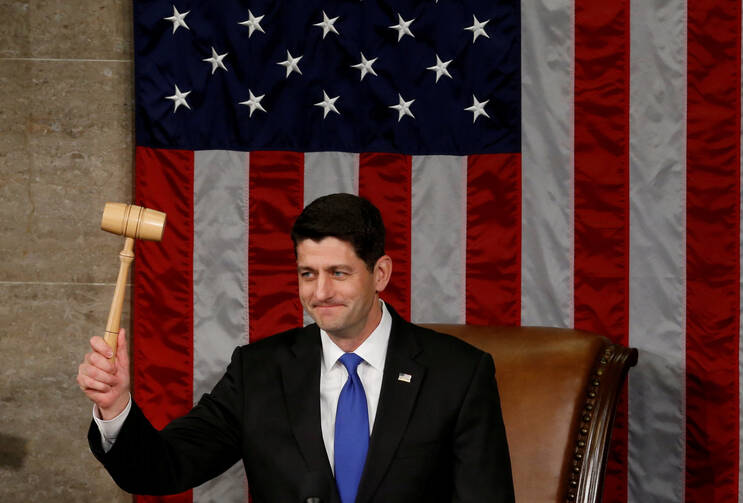Donald J. Trump stirred hope in the hearts of longtime Washington watchers by holding high-profile meetings after his election with Democrats like Al Gore and Rahm Emanuel; he even sprinkled some praise on the opposition leader in the Senate, Chuck Schumer. Those of us who believe in the institutions of government grab at any hint that an effort is afoot to make them work again.
But do not expect a return to the days when comity could be coaxed with a little (or a lot) of bourbon and branch. That Washington is gone, probably forever—these members tipple sparkling water, not the strong stuff. And in some ways, it never really existed.
House Speaker Sam Rayburn’s storied “Board of Education” room, where members gathered for drinks and cards as the sun set, was largely a site for Democratic strategy sessions, a place to “educate” members about what the party expected of them, not a space to make peace with the other party at the end of a day of debate. Republicans met in their own “Clinic” during many of the long years of Speaker Rayburn’s reign.
But it is true that in the mid- to late 20th century, when Congress passed much of the legislation that shapes the modern United States, Democrats and Republicans would eventually come together to get it done. They could actually pass bills because they shared a common belief that the other side represented what they might consider a wrong-headed view but not an evil one. The Opposition, not The Enemy, sat across the aisle.
In today’s Capitol, for a host of reasons—families no longer move to Washington, safe districts encourage polarization, a hyperpartisan media inflames outrage—members of Congress condemn everything about the other side, from motives to methods. There is scant reason to believe that will change with the new Congress.
Take a look at a map of congressional districts following the November election and you will see parties that hail from two very different Americas. A broad swath of red covers most of the nation, with bits of blue interrupting it in New England, around big cities, in Hispanic areas of the West and along the entire Pacific Coast. Only 8 percent of House members come from districts that voted for the opposite party for president.
Why then would they talk to The Enemy, much less craft legislation with someone so foreign to their voters?
Then take a look at the members themselves. Heterosexual white men comprise 88 percent of the House Republican caucus, compared with just 39 percent of the Democratic one—making for a completely changed dynamic from the day when white male military veterans made up the vast majority of both parties.
So even if these sparkling-water-sipping lawmakers suddenly switched to stronger stuff, instead of smoothing a path to civility the spirits would probably just make the dueling sides more bellicose.
Yet one small light shines in this darkness of gridlock spreading into the future. Unsurprisingly, it is shed by women. Still a tiny percentage of Congress relative to their share of the population—19 percent of the House, 21 percent of the Senate—the women on Capitol Hill do come together more often than their male colleagues.
That is especially true in the Senate, where under the leadership of now-retired Barbara Mikulski they have met regularly and learned to like each other. When the government shut down a few years back, it was women who started the conversations to break the deadlock. Practical-minded female politicians understood that the impasse affected real people. Their reaction: “Oh, for heaven’s sake!”
These women need support from more of us who share that reaction. And the Congress needs more women. Then maybe, just maybe, Washington would work again.











